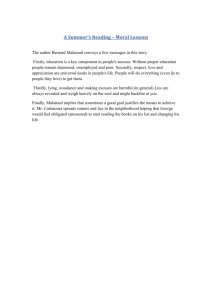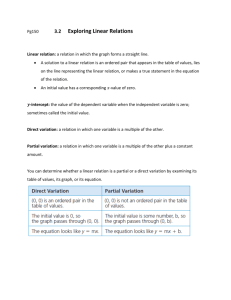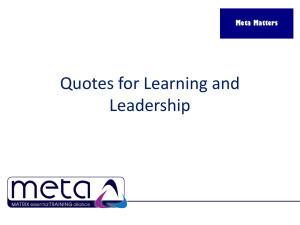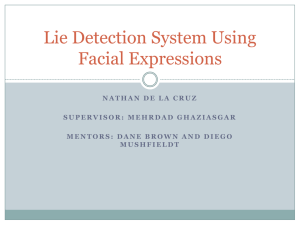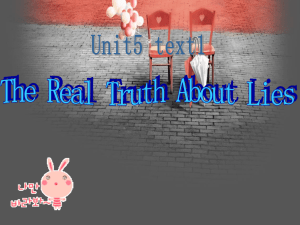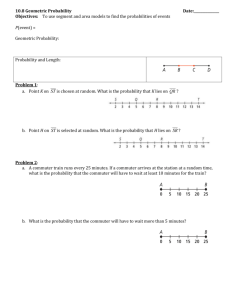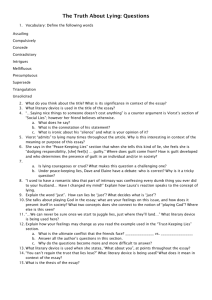truth rather
advertisement
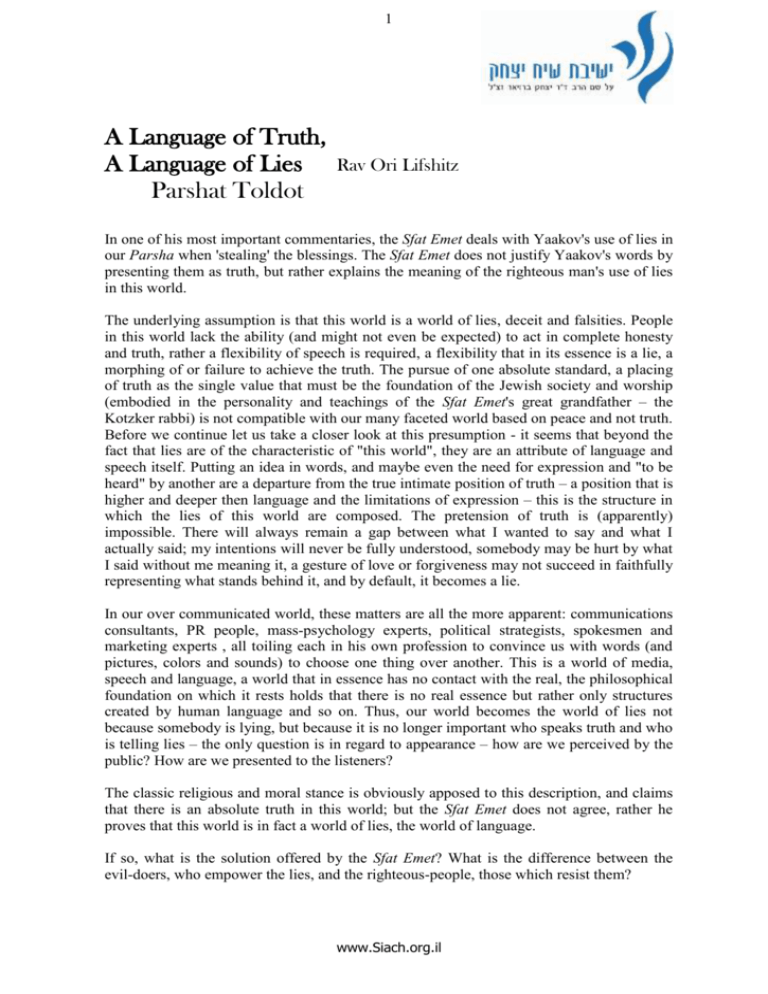
1 A Language of Truth, A Language of Lies Parshat Toldot Rav Ori Lifshitz In one of his most important commentaries, the Sfat Emet deals with Yaakov's use of lies in our Parsha when 'stealing' the blessings. The Sfat Emet does not justify Yaakov's words by presenting them as truth, but rather explains the meaning of the righteous man's use of lies in this world. The underlying assumption is that this world is a world of lies, deceit and falsities. People in this world lack the ability (and might not even be expected) to act in complete honesty and truth, rather a flexibility of speech is required, a flexibility that in its essence is a lie, a morphing of or failure to achieve the truth. The pursue of one absolute standard, a placing of truth as the single value that must be the foundation of the Jewish society and worship (embodied in the personality and teachings of the Sfat Emet's great grandfather – the Kotzker rabbi) is not compatible with our many faceted world based on peace and not truth. Before we continue let us take a closer look at this presumption - it seems that beyond the fact that lies are of the characteristic of "this world", they are an attribute of language and speech itself. Putting an idea in words, and maybe even the need for expression and "to be heard" by another are a departure from the true intimate position of truth – a position that is higher and deeper then language and the limitations of expression – this is the structure in which the lies of this world are composed. The pretension of truth is (apparently) impossible. There will always remain a gap between what I wanted to say and what I actually said; my intentions will never be fully understood, somebody may be hurt by what I said without me meaning it, a gesture of love or forgiveness may not succeed in faithfully representing what stands behind it, and by default, it becomes a lie. In our over communicated world, these matters are all the more apparent: communications consultants, PR people, mass-psychology experts, political strategists, spokesmen and marketing experts , all toiling each in his own profession to convince us with words (and pictures, colors and sounds) to choose one thing over another. This is a world of media, speech and language, a world that in essence has no contact with the real, the philosophical foundation on which it rests holds that there is no real essence but rather only structures created by human language and so on. Thus, our world becomes the world of lies not because somebody is lying, but because it is no longer important who speaks truth and who is telling lies – the only question is in regard to appearance – how are we perceived by the public? How are we presented to the listeners? The classic religious and moral stance is obviously apposed to this description, and claims that there is an absolute truth in this world; but the Sfat Emet does not agree, rather he proves that this world is in fact a world of lies, the world of language. If so, what is the solution offered by the Sfat Emet? What is the difference between the evil-doers, who empower the lies, and the righteous-people, those which resist them? www.Siach.org.il 2 First of all, Sfat Emet finds his solution in the use of the lie itself. The Tzadik does not present an alternative world to this one, instead he uses it and dresses himself in the language and lies. Only in this way (and not by placing oneself outside and against) can the Tzadik overcome the lie. It seems, that speaking lies with an intention of truth and an awareness to the infinite gap between the inner and the outer, allows for a cancelation of the deceitfulness of lies. Repairing the world by using outward lies and a hidden inner intention of truth, allows to repair the deceit itself, the false face, the gap between subject and object Secondly, the secret of success lies in the fact that one is not capable of getting there alone: divine assistance is needed. In truth, it is not in man's power or ability to transcend the boundaries of language. We will always be forced to speak with humans, to listen and converse, and always feel that "it's just not it". Even if we think to ourselves, we think with words and they shape our thoughts and imagination. This is our world, and we will not escape it on our own, only with God's help. That help realizes itself in Yaakov's life in the form of prayer. Yaakov does submit (or chooses to submit) to the rules of this world and lies, but his prayer is that the language of lies does not become something inside, part of his soul. As apposed to the evil-doers who are attached to lies, the Tzadik prays that his "self" will remain whole. It is true that "but when I speak, they [come] to [wage] war" [Psalms 120, 7] – my speech and behavior in this world obligate me to lie, a lie that by default transforms existence into a battle with my fellow man, but my yearning is that in my essence, in my most intimate part of my "self", I will not be that way. Such a request is seemingly impossible. Rav Kook teaches that "the actions speak inside the soul", and it is clear that these forms of phrase and tools of expression define the content and the light within them, and 'the medium is the message'. But here exactly lies what the Sfat Emet refers to as 'language of truth'. Prayer is in essence the act of turning to God to extract me from this language of lies, the act of developing awareness and sensitivity to the nature of the world as a place of lies, even if I am a citizen of this world, these are spiritual movements that not only create the foreignness to the lies themselves but also present the ability to, perhaps (with God's help), retain a place of truth inside man. And one final point: Prayer itself can often be understood as a lie, as self delusion. I don’t always mean everything I say and even if I do, most times it's not in 'real' intent, it's not complete or genuine. The salvation from this frustration is in the prayer for prayer. Prayer as it is today is already a part of the language of lies of the world. "They beguiled Him with their mouth, and with their tongue they lied to Him. Their heart was not sincere with Him; they were not faithful in His covenant", but my prayer to God requesting him to help me break the cycle of dishonesty and lack of authenticity, is one that it is not phrased in words, and that may preserve (or create…) the balance point for truth in the world www.Siach.org.il

